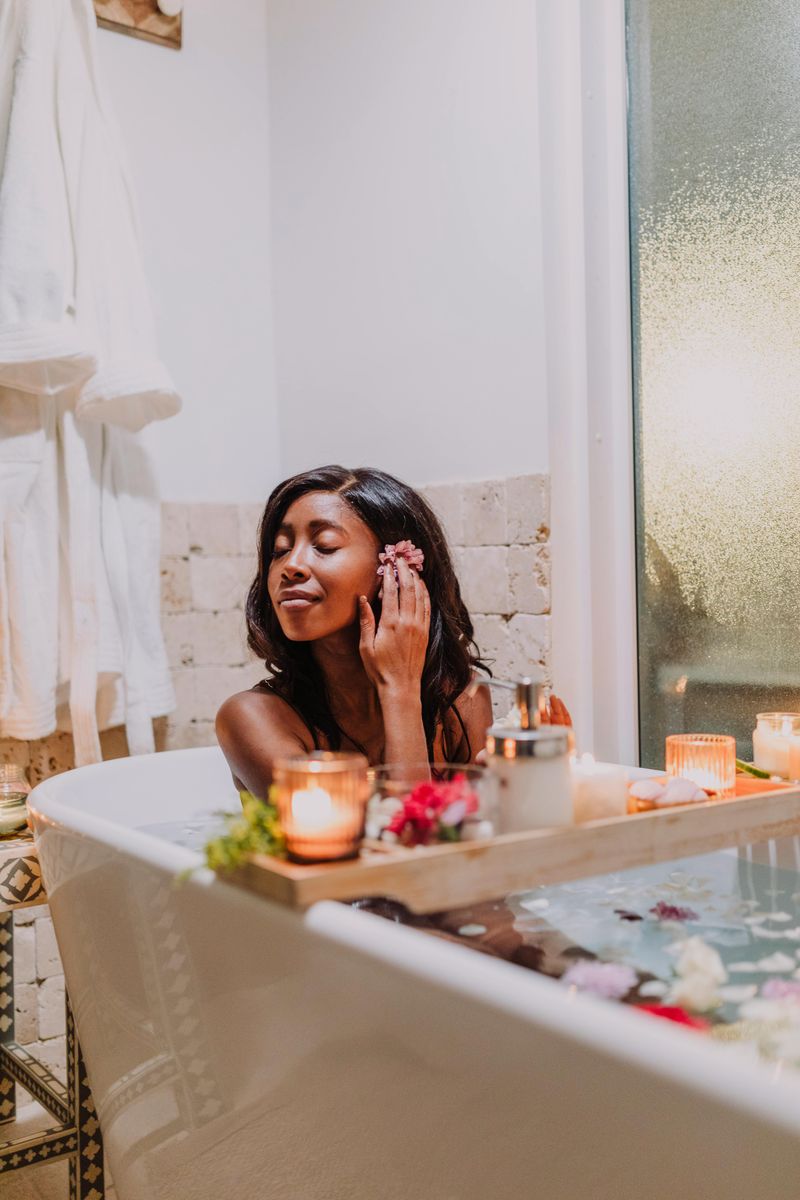11 Toxic Relationship Habits We Mistake for Love

Love can be a beautiful, messy, confusing thing. We’re taught from movies, songs, and social media that passion means drama, that jealousy equals devotion, and that “real love” should consume us. But sometimes, the things we believe are signs of deep affection are actually toxic patterns in disguise.
1. Constant Jealousy

Possessiveness might feel flattering at first, like someone cares so deeply they can’t stand the thought of losing you. But when jealousy becomes a daily occurrence, it stops being romantic and starts being suffocating.
A partner who questions every friendship, monitors your social media, or makes you feel guilty for spending time with others isn’t showing love—they’re showing insecurity and control.
Healthy relationships are built on trust, not surveillance. Real love encourages you to have your own friendships, hobbies, and independent life. When someone truly values you, they won’t try to isolate you from the world.
If jealousy is a constant theme in your relationship, it’s time to have an honest conversation about boundaries and trust. Love shouldn’t make you feel like you’re walking on eggshells or constantly proving your loyalty.
2. Checking Each Other’s Phones

Some couples proudly announce they have each other’s passwords and check phones regularly, calling it transparency. In reality, this behavior signals a fundamental lack of trust. Privacy isn’t about having something to hide; it’s about respecting personal boundaries and individual autonomy within a relationship.
When you feel compelled to read every text message or scroll through your partner’s social media history, you’re not building intimacy—you’re building resentment. Trust can’t be manufactured through digital surveillance. It grows through consistent honesty, open communication, and choosing to believe in your partner’s integrity.
True transparency means being open about your feelings, intentions, and concerns, not surrendering your right to privacy. A relationship where both people feel safe keeping some things to themselves is actually healthier than one where every digital interaction is monitored and analyzed.
3. Needing to Be Together 24/7

Wanting to spend every waking moment together might seem like the ultimate expression of love, but it’s actually a warning sign of codependency. Healthy individuals maintain their own identities, friendships, and interests outside their romantic relationships.
When couples become so intertwined that they can’t function independently, they lose the very qualities that attracted them to each other in the first place.
Missing your partner when you’re apart is normal and sweet. But feeling anxious, incomplete, or lost without them is a red flag. You should enhance each other’s lives, not become each other’s entire world.
Strong relationships include time apart to grow as individuals. When you have separate experiences and then come back together to share them, you keep the relationship dynamic and interesting instead of stagnant and suffocating.
4. Making Sacrifices to the Point of Self-Neglect

Compromise is essential in relationships, but completely abandoning your dreams, goals, and needs isn’t compromise—it’s self-erasure. When you consistently put your partner’s desires above your own well-being, you’re not demonstrating love; you’re losing yourself.
This pattern often develops gradually, with small sacrifices that seem reasonable at first but eventually add up to a completely one-sided dynamic.
A partner who truly loves you will never ask you to become smaller to make them feel bigger. They’ll celebrate your ambitions, support your growth, and encourage you to pursue what makes you happy.
Remember that you can’t pour from an empty cup. Taking care of yourself isn’t selfish—it’s necessary. The healthiest relationships involve two whole people choosing to share their lives, not one person dissolving into another’s existence.
5. Frequent Fighting Framed as Intense Love

Drama isn’t passion, and constant conflict isn’t a sign of deep connection. Some couples convince themselves that their explosive arguments prove how much they care, romanticizing the chaos as evidence of intense feelings. But healthy relationships are characterized by peace, not perpetual turmoil.
Sure, the makeup moments after big fights can feel intense and bonding, but that’s often just the relief of returning to baseline. You’re essentially becoming addicted to the emotional rollercoaster rather than building genuine intimacy. Real passion exists in relationships where respect, kindness, and understanding are the foundation.
Disagreements are normal and even healthy when handled constructively. But if you’re constantly fighting, walking on eggshells, or experiencing dramatic highs and lows, that’s not love—it’s toxicity. True connection feels stable, safe, and supportive, not like an emotional battlefield.
6. Trying to Fix or Save Your Partner

Entering a relationship with someone you view as a project is a recipe for disappointment and resentment.
When you’re attracted to someone’s potential rather than who they actually are, you’re setting yourself up for heartbreak. The desire to “fix” or “save” someone might feel noble, but it’s actually disrespectful—it implies they’re broken and need your intervention to be worthy of love.
Your partner is a grown person responsible for their own growth and healing. While supporting each other through challenges is part of healthy love, taking on the role of therapist, parent, or savior creates an unbalanced dynamic.
Real support means encouraging someone’s own efforts to improve, not doing the work for them. If you find yourself constantly making excuses for bad behavior or believing you’re the only one who can help them change, step back and reassess whether you’re in a partnership or a rescue mission.
7. Guilt-Tripping or Emotional Manipulation

When someone uses your feelings against you to get what they want, that’s manipulation, not love. Guilt-tripping sounds like: “If you really loved me, you would…” or “I guess I’m just not important to you.”
These tactics are designed to make you feel responsible for your partner’s emotions and compliance with their wishes.
Healthy partners make requests directly and respect your right to say no. They don’t weaponize your affection or make you feel like a bad person for having boundaries. Commitment should be freely given, not coerced through emotional blackmail.
Pay attention to how you feel after conversations with your partner. If you frequently feel guilty, confused, or like you’re constantly apologizing for reasonable choices, manipulation might be at play. Love should empower you, not make you question your own judgment and feelings.
8. Keeping Score of Who Loves More

Love isn’t a competition, and relationships shouldn’t feel like a constant audit of who’s contributing more.
When partners start tallying up gestures, sacrifices, and expressions of affection to prove who cares more, they’ve fundamentally misunderstood what healthy love looks like. This scorekeeping creates resentment and turns something beautiful into a transaction.
In balanced relationships, both people give freely without expecting exact reciprocation for every action. Sometimes one person will need more support, and sometimes the other will. That natural ebb and flow is normal and healthy.
If you or your partner frequently bring up past favors, count who initiated the last date, or use phrases like “I always” and “you never,” it’s time to refocus on connection rather than competition. Love flourishes when both people feel appreciated and valued, not when they’re constantly trying to prove their devotion.
9. Over-the-Top Romantic Gestures After Conflict

Grand gestures following arguments might seem romantic, but they’re often a manipulation tactic called love bombing. When someone showers you with affection, gifts, and promises immediately after hurting you, they’re trying to smooth over the problem without actually addressing it.
This pattern keeps you hooked on the highs while tolerating increasingly unacceptable lows.
Real reconciliation involves genuine apology, accountability, and changed behavior over time. Flowers and elaborate dates are nice, but they don’t fix underlying issues or demonstrate true remorse. If the same patterns keep repeating despite the dramatic makeups, those gestures are distractions, not solutions.
Healthy relationships address conflicts through honest communication and mutual effort to improve. Be wary of partners who seem to think expensive gifts or passionate declarations can substitute for real change and respect.
10. Expecting Your Partner to Meet Every Emotional Need

No single person can be your everything—your best friend, therapist, entertainment, emotional support system, and life coach all rolled into one.
When you place the responsibility for your entire emotional well-being on your partner’s shoulders, you create an impossible burden that will eventually crush the relationship. This unrealistic expectation is often romanticized as “soulmate behavior,” but it’s actually emotional dependency.
Healthy adults have multiple sources of support, fulfillment, and connection. Friends, family, hobbies, therapy, and personal growth all play important roles in your emotional health. Your partner should enhance your life, not be solely responsible for your happiness.
When you cultivate a rich, full life outside your relationship, you bring more to the partnership. You’ll have interesting things to share, emotional resilience during tough times, and the ability to support your partner without draining them completely.
11. Believing That Love Means Never Having Boundaries

Boundaries aren’t walls that keep love out; they’re guidelines that protect the relationship and the individuals within it.
When people believe that setting limits means they don’t truly love their partner, they end up in relationships where they feel drained, disrespected, and resentful. Saying no to things that harm your well-being isn’t rejection—it’s self-respect.
Partners who truly love you will appreciate your boundaries because they want you to be healthy and whole. They won’t pressure you to share everything, be available constantly, or sacrifice your needs to prove your devotion. Instead, they’ll respect your limits and set their own.
Establishing boundaries actually strengthens relationships by creating clear expectations and mutual respect. When both people feel safe expressing their needs and limits, intimacy deepens. Love without boundaries isn’t deeper love—it’s a recipe for burnout and disappointment.

Comments
Loading…